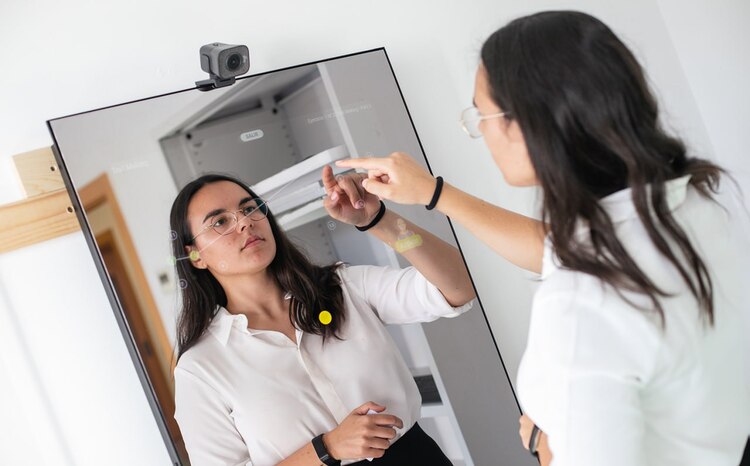Quality counts
- 25 June 2009
| The Quality and Outcomes Research Unit at University Hospitals Birmingham NHS Foundation Trust |
 |
| Winner: Excellence in Healthcare Information Management |
 |
The Quality and Outcomes Research Unit at University Hospitals Birmingham NHS Foundation Trust brings analysts and clinicians together to generate data to change services and improve patient care.
It won both the IMS Health-sponsored excellence in healthcare information management award in last year’s BT E-Health Insider awards and emerged as the overall winner. Daloni Carlisle finds out more about its work and what winning the award has meant.
There is an awful lot written about the potential for good quality data to unlock service improvements and improve patient care; but much less about how to do it.
It is a nut that University Hospitals Birmingham NHS Foundation Trust has done a good deal to crack – making its Quality and Outcomes Research Unit winners of the Excellence in Healthcare Information Management award in last year’s BT E-Health Insider awards; and overall winner as well.
First, find your data
The Quality and Outcomes Research Unit is an initiative developed to research NHS care and then encourage clinical interventions that will make sure patients have the best outcomes.
By linking a wide range of information systems, the unit is able to monitor and analyse elements of service delivery. By encouraging analysts to work closely with consultants, the unit allows this information to be used for the improvement of care and patient experience.
This is best illustrated by cardiac care – the initial focus of the unit’s work. On the clinical side, consultant cardiothoracic surgeon Domenico Pagano wanted to improve the quality of care received by his patients.
In doing this, he was keen to advance the work of his predecessor at the hospital – Professor Sir Bruce Keogh, a UK pioneer in making cardiac mortality data available to the public, and now the NHS’ medical director. But first, he needed to understand more about who was getting what and what outcomes were being achieved.
As Pagano points out, surgeon-specific mortality is currently being used as a surrogate of quality; whereas cardiac surgery is really a team endeavour. A quality service requires not just good teamwork but also standardised care that is clinically effective.
So he teamed up with Daniel Ray, the trust’s director of informatics to extract and analyse data from the multiple SQL databases used to audit cardiac surgery in the UK.
Exposing trends
Ray describes his part in the Quality and Outcomes Research Unit. “My role is largely to link all the different bits of data from around the trust and set up the architecture, emails, dashboards and so on that make it visible, and to support the production of research papers,” he says.
Ray was able to scope out what data was where and the relevant governance procedures needed to create a combined individual record for each patient.
The resulting three years of data on 2,212 cardiac surgical patients was a powerful resource, providing clinicians with the information they needed to improve the quality of their service. It helped them to design a new “care bundle” for patients undergoing coronary artery bypass graft surgery (CABG).
This care bundle describes the evidence-based interventions that patients need. At University Hospitals Birmingham it has driven up quality measures such as the number of people receiving beta-blockers on day one of their admission. Length of stay and readmission rates have been brought down as a result of improving the quality of care.
As Ray says: “We have been able to tackle real service problems. It has helped significantly in improving outcomes for patients for a start. Analysing the data in this way has picked up all sorts of service issues and it has been used in all sorts of ways, for example capacity planning for a new hospital.”
The approach developed by the unit allows the trust to:
- Collect quality and outcome data representative of the process of care.
- Make data available to health care providers to improve delivery of care.
- Give patients data to inform choice.
- Provide data for commissioners.
- Improve quality and outcomes.
Time to get serious
The third element of the unit is academic input. Professor Nick Freemantle, Professor of Clinical Epidemiology and Biostatistics at the University of Birmingham, provides its statistical support and lends some academic weight.
The Quality and Outcomes Research Unit has been involved in some large scale clinical studies. For example, it was instrumental in recently published work that drew on data from 44,902 procedures at five hospitals over ten years which showed that people who are economically deprived do less well after coronary surgery than the better off.
The unit has also been named in other clinical trials looking at the costs of not treating cancer patients with expensive new drugs.
Since winning the award, the unit has continued to develop, appointing a post-doctoral student and an analyst to the team. It hopes to automate bundle analysis and all specialties have been asked to come up with a process and outcome measure that could lend itself to the same sort of analysis.
“Other specialties are now asking us to come up with metrics,” says Ray. “We aim eventually to extend our work to all units in the trust.”
The unit is now looking at linking outcome data with the trust’s patient experience tracker. Ray thinks this hard approach to data is where the future lies.
“[The foundation trust regulator] Monitor has been saying that a lot of foundation trusts take quite a fluffy approach to quality,” he says. “We are coming at it from a very hard perspective and saying let’s really measure it. Then if people are not delivering quality we can really begin to performance manage that.”
The approach is transferable to other trusts, providing they have data of the right quality, he adds.
Certainly, winning the BT EHI awards have made a difference to the team.
“Things have really taken off at the trust as a result of winning the award,” says Ray. “Our communications team here made sure it was splashed around the hospital for a start. And it as great to be there and to be the winning entry.”
|
The E-Health Insider Awards 2009 in association with BT: The closing date for entries to this year’s E-Health Insider Awards in association with BT is fast approaching. Information about this year’s awards, along with details of how to enter, can be found on their dedicated website. If you’d like to see your work featured on EHI next year, why not enter now? |
Other links:
More about the BT e-Health Insider Awards 2008: The BT e-Health Insider Awards: live on the night.
More about the excellence in healthcare information management category.




